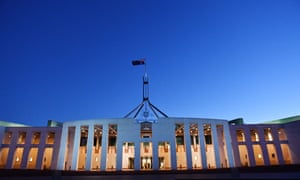Extract from The Guardian
Independent watchdog is needed to investigate breaches and mete out significant punishment, experts say
Labor has said there is “no reason” misconduct in the lobbying sector
would not be covered by its proposed federal integrity commission, but
has stopped short of saying it would actively police lobbying rules.
The national integrity commission, proposed by Labor if it is elected, is still being designed, but a spokeswoman for the shadow attorney general, Mark Dreyfus, said its remit could extend to lobbying.
“The seven design principles laid out by Bill Shorten ensure Labor’s national integrity commission will capture a wide range of misconduct across the public service, parliament, governor general, judiciary and statutory office holders,” she said. “There is no reason why misconduct involving inappropriate interaction with the lobbying industry would be excluded from this.”
Experts largely agree that the current oversight of lobbying is compromised by the lack of any independent enforcement agency to investigate breaches of the lobbying rules and mete out significant punishment.
Guardian Australia revealed earlier this week that agencies across the country have comprehensively failed to enforce lobbying rules in their jurisdictions, including at a federal level.
An integrity commission is likely to have strong investigative powers, but would not necessarily enforce the lobbying code of conduct. It would likely instead go after lobbyists who were part of a broader corruption case.
The Australia Institute accountability researcher Hannah Aulby said the independent integrity commission should be established as a matter of urgency.
“No agency currently has the jurisdiction or investigative powers to provide proper oversight of our federal government and public service,” Aulby said. “Many allegations of corruption go without investigation.”
“The public has a right to know that our representatives are always acting in the public interest. A national integrity commission will be the public’s independent watchdog.”
Guardian Australia revealed earlier this week that 52% of currently registered lobbyists had a history within government and one in four were former political staffers. Another significant cohort of ex-government ministers and politicians now work directly for big business and peak interest groups, but are not counted as lobbyists under Australia’s narrow oversight regime.
University of Melbourne researcher George Rennie, writing for Guardian Australia, said a well-resourced independent integrity commission must be able to police the revolving door between politics and lobbying, and gifts.
The national integrity commission, proposed by Labor if it is elected, is still being designed, but a spokeswoman for the shadow attorney general, Mark Dreyfus, said its remit could extend to lobbying.
“The seven design principles laid out by Bill Shorten ensure Labor’s national integrity commission will capture a wide range of misconduct across the public service, parliament, governor general, judiciary and statutory office holders,” she said. “There is no reason why misconduct involving inappropriate interaction with the lobbying industry would be excluded from this.”
Experts largely agree that the current oversight of lobbying is compromised by the lack of any independent enforcement agency to investigate breaches of the lobbying rules and mete out significant punishment.
Guardian Australia revealed earlier this week that agencies across the country have comprehensively failed to enforce lobbying rules in their jurisdictions, including at a federal level.
An integrity commission is likely to have strong investigative powers, but would not necessarily enforce the lobbying code of conduct. It would likely instead go after lobbyists who were part of a broader corruption case.
The Australia Institute accountability researcher Hannah Aulby said the independent integrity commission should be established as a matter of urgency.
“No agency currently has the jurisdiction or investigative powers to provide proper oversight of our federal government and public service,” Aulby said. “Many allegations of corruption go without investigation.”
“The public has a right to know that our representatives are always acting in the public interest. A national integrity commission will be the public’s independent watchdog.”
Guardian Australia revealed earlier this week that 52% of currently registered lobbyists had a history within government and one in four were former political staffers. Another significant cohort of ex-government ministers and politicians now work directly for big business and peak interest groups, but are not counted as lobbyists under Australia’s narrow oversight regime.
University of Melbourne researcher George Rennie, writing for Guardian Australia, said a well-resourced independent integrity commission must be able to police the revolving door between politics and lobbying, and gifts.
The industry group representing lobbyists, the Australian Professional Government Relations Association, rejects the notion that the current lobbying code is weak and unenforced. But it does want to see it cover all those who approach government, to create a level playing field.
“While APGRA does not agree with the suggestion that the code of conduct is weak or unenforced, there are some areas where the code of conduct could be improved,” its president, Les Timar, said.
- This reporting is supported by the Susan McKinnon Foundation through the Guardian Civic Journalism Trust

No comments:
Post a Comment